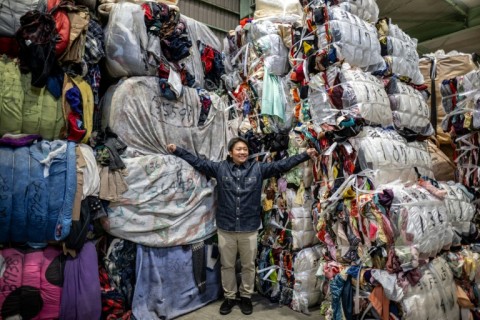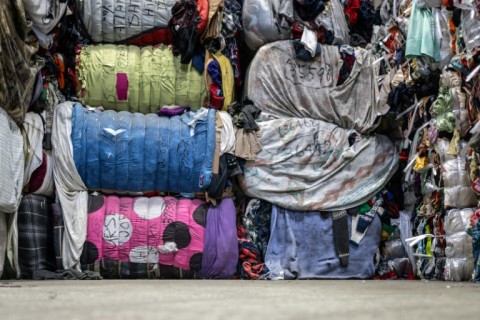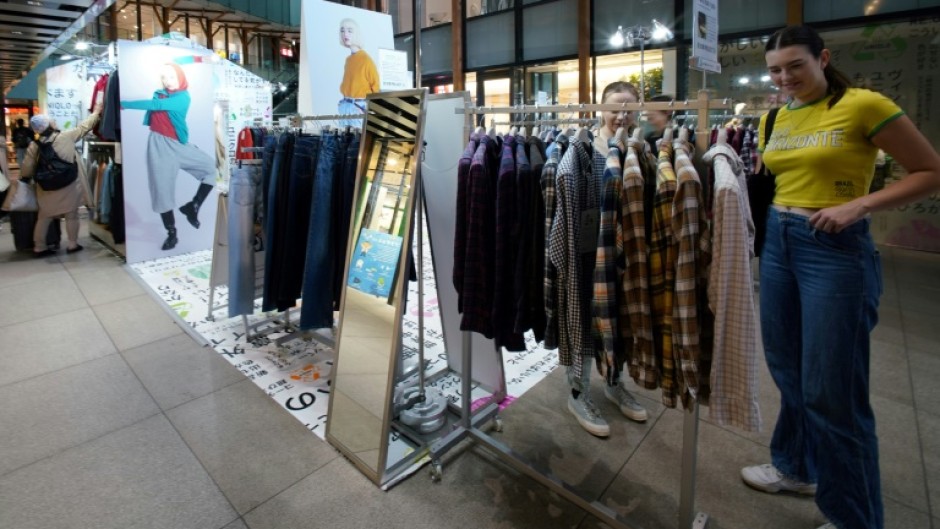TOKYO - A second-hand pop-up store in Tokyo by casual clothing giant Uniqlo was a first for the Japanese firm, but also a sign that a local aversion to used garments may finally be fading.
Uniqlo is a major player in an industry blamed for immense carbon emissions and other pollutants like microplastics.
It has ridden a wave of consumers buying, and throwing away, ever more clothes.
But in Japan, the world's third-biggest clothes market, growing awareness of the sector's huge environmental impact has yet to spark much interest in second-hand options.

Uniqlo's Aya Hanada said the 10-day pop-up in the hip Harajuku district, where second-hand clothes were a third of their original price -- with some dyed for a "vintage" look -- showed attitudes were changing.
The change is in part thanks to the internet, she told AFP outside one of Uniqlo's major stores, which allows customers to access items "without having to go all the way to a second-hand clothing store."
There is still a long way to go, however.
In Japan, 34 percent of discarded clothing is recycled or reused, according to the environment ministry.
But this includes exports to developing countries, where the waste also often ends up in tips or is incinerated.

Alongside Fast Retailing-owned Uniqlo, which touts efforts to transform second-hand clothes into new products and also donates them to refugees and others in need, used garment specialist 2nd Street has expanded to 800 stores across Japan.
There has also been growth in online sales between individuals, driven mainly by the popular Japanese platform Mercari, where around a third of transactions by value are fashion items.
Second-hand Japanese clothes are even popular in China and elsewhere.

